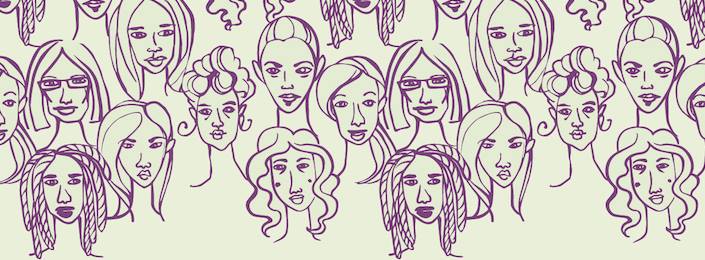In commemoration of Women’s History Month, Fenway Health’s Women’s Health Team, the Lesbians of Color Symposium Collective, Flashback Sunday: Elders of Color, Older Lesbians Organizing for Change, and Rally presented a screening of “A Moment in Her Story: Stories from the Boston Women’s Movement.” Directed by Catherine Russo, the film provides an exploration of major challenges faced by the Second Wave Women’s Movement Boston activists of the late 60s and early 70s. Through 22 interviews with leaders of the movement, the movie documented activists advocating for issues surrounding domestic violence, reproductive health, local politics, and more. Much like today, feminist activists who possessed multiple marginalized identities, such as LGBTQ, racial minority, and working class women, faced resistance in the mainstream movement and created their own feminist subgroups to embrace their diversity.
After the screening, an intergenerational panel of local feminist activists led a discussion facilitated by Tanekwah Hinds, the Women’s Health Program Coordinator at Fenway Health. The panelists included Rochelle Ruthchild, a Co-Founder of Cambridge Women’s Center; Mercedes Tompkins, the Chief Development Officer at Brookview House and a member of the Combahee River Collective; Chastity Bowick, the Transgender Health Coordinator at AIDS Action Committee, Co-Director of the Transgender Emergency Fund, and Organizer of the Million Trans March; and Beverly Eugene, a planning committee member for Women of Color Weekend in Provincetown and former Community Organizer at The Network/La Red.
The panelists discussed similar and different challenges that they face as feminist community organizers. As a second-wave feminist, Rochelle revealed that feminism saved her life; however as an activist, it’s still important to practice self-care. Mercedes and Beverly noted how technology has changed the way in which activists connect, organize, and produce and distribute content. In response to a call for advice to younger feminists, Mercedes encouraged second-wave feminists to mentor current activists on the similar challenges that they faced.
Another audience member asked for ways that the LGBTQ community can make the movement more inclusive and intersectional for women. Chastity emphasized the need to uplift the voices of transgender woman who face disparate health disparities and deserve a seat at the table. In addition to transphobia, Beverly also noted that biphobia within the LGBTQ movement ignores the identity and struggle of bisexual individuals. Each panelist encouraged feminist activists to take an intersectional approach, inviting diverse identities to have a seat at the table and recognizing that oppression affects marginalized communities differently.


